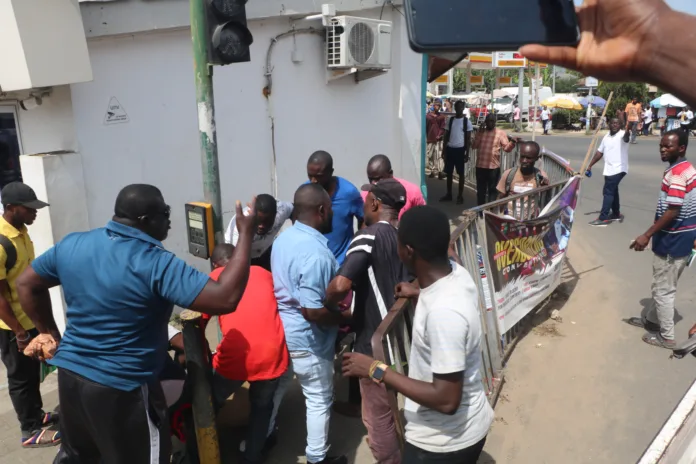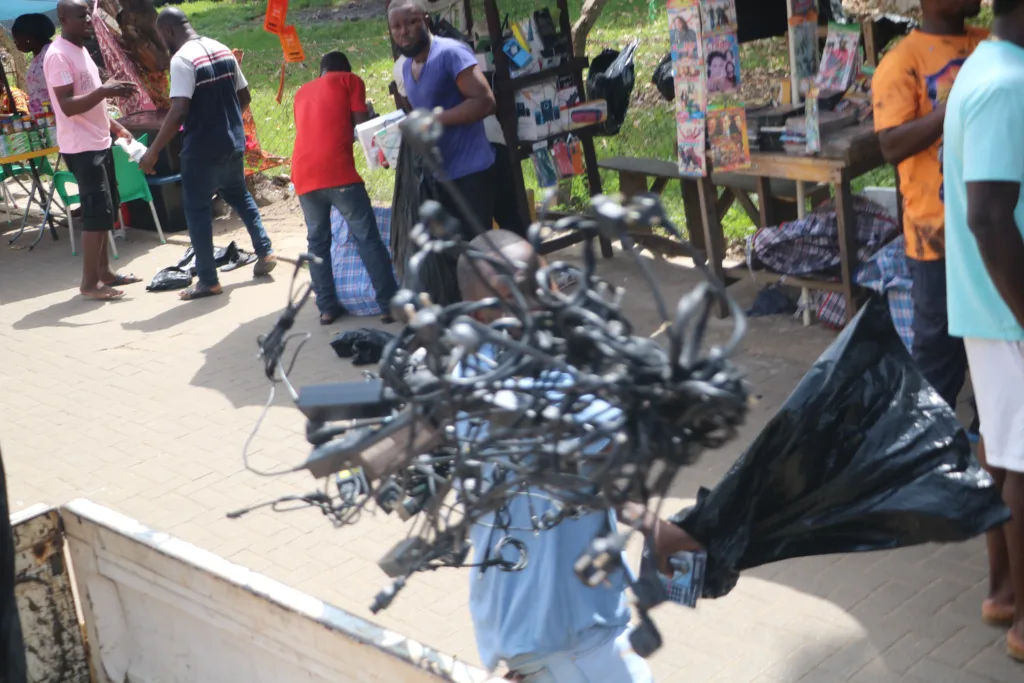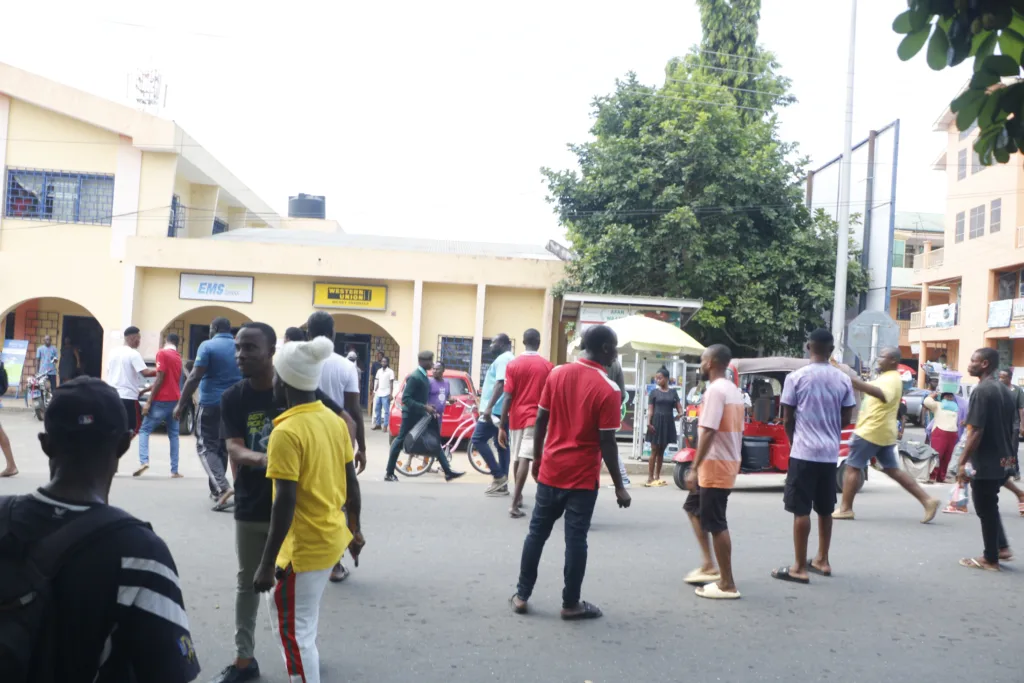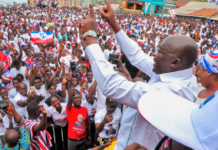
Chaos ensued in Koforidua, Eastern Regional Capital on Monday November 20, 2023 as clashes erupted between members of the Ghana Union of Traders Association (GUTA) and foreign retailers, predominantly Nigerians.
The incident occurred as GUTA intensified its mission to close down shops and businesses operated by foreigners engaged in retail activities.
Mobile phone accessories and bags were seized on the streets, triggering heated confrontations and physical altercations.
In a surprising turn of events, dozens of Nigerians mobilized and stormed the New Juaben South Municipal Assembly, where GUTA members had converged for debriefing after their operations.
The Nigerians, demanding the release of their seized items and justice for what they deemed as the mistreatment of their compatriots, created a tense atmosphere at the assembly.

It took the intervention of Michael Okyere Baafi, Member of Parliament for New Juaben South who is also Deputy Minister for Trades and Industry, to restore order and calm tempers.
GUTA’s stance is rooted in concerns over competition and the potential impact of foreign retailers on the local market.
Samuel Victor Aikens, Eastern Regional Vice Chairman of GUTA, emphasized the association’s commitment to enforcing the Ghana Investment Promotion Centre (GIPC) Law, which prohibits foreigners from engaging in retail trade.
“Every country has its laws and regulations. GIPC ACT 865 forbids foreigners from entering into retail trade so that is why we are stopping them from operating in retail. We are asking them not to retail. They can bring the goods, give it to Ghanaians to sell it at retail price. So that is why we are trying to prevent them from doing retail. We are not stopping. There are foreigners retailing rice, oil, motors we are going to stop them,” stated Samuel Aikens.

However, not all Ghanaians support GUTA’s actions. Some bystanders argue that the Nigerians have brought competitive pricing to the mobile phone business, preventing cheating on the part of Ghanaian dealers.
Hon. Okyere Baafi, MP for New Juaben South, emphasized the importance of respecting domestic laws despite regional and continental efforts to promote free trade. He highlighted that the GIPC Act does not permit foreign nationals to engage in retail, and the Ministry supports the closure of foreign retail shops but advocates for a peaceful approach.
“Because of what we call ECOWAS UTLS, citizens of countries in the ECOWAS region can enter every market to do business which is duty free, quota free ,however you have to get documents to prove that you can do legitimate business .So if you don’t have those documents to prove then you will not be allowed to do business and exactly what is happening.”
This incident comes two weeks after the Eastern Regional branch of GUTA closed down 38 shops of foreigners engaged in retail businesses. The association has vowed to continue its efforts throughout the yuletide season and beyond.
The clash between GUTA and foreign retailers adds diplomatic frictions between Ghana and Nigeria, whose citizens have flooded the local market engaging in retail business.
As a result, a 2021 joint communique signed between Ghana and Nigeria during the Extraordinary ECOWAS Summit attempted to address this problem.
The agreement highlighted a reconsideration of the 1-million-dollar minimum requirement from foreigners for trading enterprises under section 28(2) of the Act.
The move was aimed at resolving a 25-year retail dispute between Ghana and Nigeria, and it was officially presented by Ghana’s Speaker of Parliament, Alban Bagbin, to Nigeria’s House of Representatives following the summit.
Speaker Alban Bagbin expressed that this intervention marked the conclusion of the retail impasse between the two nations.
The adjustment was intended to facilitate the regularization of the businesses run by affected Nigerian retail traders who had been previously excluded from the market. Furthermore, a special concession was introduced, reducing the stamp duty requirement to 0.5, with the promise that it would not apply to Nigerian traders.
Source: Ghana/Starrfm.com.gh/103.5FM/Kojo Ansah




